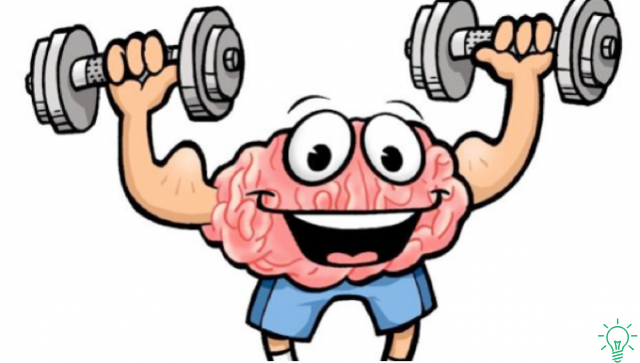
A collection of tips on how to improve memory and cognitive skills that you can implement into your lifestyle right now.
Everyone has moments of forgetfulness from time to time, especially when life gets hectic.
While forgetting something from time to time can be completely normal, having a poor memory can be frustrating.
Genetics play a role in memory loss, especially in severe neurological conditions like Alzheimer's disease. However, scientific research has shown that diet and lifestyle have a major impact not only on physical health, but also on memory.
Here are 14 scientifically proven ways to improve memory naturally.
How to improve memory naturally
1. Avoid added sugar
Eating too much added sugar has been linked to many health problems and chronic diseases, including cognitive decline.
Research has shown that a sugar-based diet can lead to poor memory and reduced brain volume, particularly in the area of the brain responsible for short-term memory (Source 1, Source 2).
For example, a study of more than 4.000 people found that those who consume more sugary drinks like colas on average have lower total brain volume and faded memories than people who consume less sugar (Source 2).
Reducing sugars not only helps your memory, but also improves your overall health.
Summary: Research has shown that people who regularly consume foods high in added sugar may have poorer memory and lower brain volume than those who consume less sugar.
2. Try fish oil
Fish oil is rich in omega-3 fatty acids, eicosapentaenoic acid (EPA) and docosahexaenoic acid (DHA).
These fats are important for overall health and have been shown to reduce the risk of heart disease, reduce inflammation, relieve stress and anxiety, and slow mental decline (Source 3, Source 4).
Many studies have shown that consuming fish oil can improve memory, especially in older people.
A study of 36 older adults with mild cognitive impairment found that short-term memory scores improved significantly after adding concentrated fish oil to the diet for 12 months (Source 5).
Another recent review of 28 studies showed that when adults with mild symptoms of memory loss took supplements rich in DHA and EPA, such as fish oil, they experienced an improvement in episodic memory (Source 6).
Both DHA and EPA are vital for brain health and function and also help reduce inflammation in the body, which has been linked to cognitive decline (Source 7).
Summary: Fish oil is rich in omega-3 fatty acids, EPA and DHA. Its consumption can help improve short-term memory and episodic memory, especially in older people.
3. Find time to meditate
Practicing meditation can positively affect your health in many ways.
It's relaxing, has been found to reduce stress and pain, lower blood pressure, and even improve memory (Source 8).
In fact, meditation has been shown to increase the amount of gray matter in the brain, which is where neurons reside. (Source 9).
With age, gray matter decreases, negatively affecting memory and cognitive abilities (Source 10).
Meditation and relaxation techniques have been shown to improve short-term memory in people of all ages, from their twenties to seniors (Source 11).
For example, one study showed that Taiwanese college students who practiced meditation, such as self-awareness, had significantly better spatial working memory than students who did not practice meditation (Source 12).
Spatial working memory is the ability to retain and process mental information about the positions of objects in space.
summary Meditation is not only good for the body, but also for the brain. Research suggests that meditation can increase gray matter in the brain and improve spatial memory.
4. Maintain a healthy weight
Maintaining a healthy body weight is essential to well-being and is one of the best ways to keep your body and mind in peak condition.
Several studies have established that obesity is a risk factor for cognitive decline.
Interestingly, being obese can actually cause changes in genes associated with memory, negatively affecting them (Source 13).
Obesity can also lead to insulin resistance and cause chronic inflammation, both of which can negatively affect the brain (Source 14).
A study of 50 people between the ages of 18 and 35 found that a higher BMI was associated with significantly worse performance on memory tests (Source 15).
Obesity is also associated with an increased risk of developing Alzheimer's disease, a progressive disease that impairs memory and cognitive function (Source 16).
summary Obesity is a risk factor for cognitive abilities. Maintaining an optimal BMI can help prevent a number of problems associated with obesity, including poorer memory.
5. Get enough sleep
Lack of adequate sleep has been associated with poor memory for some time.
Sleep plays an important role in memory consolidation, the process in which short-term memories are strengthened and transformed into lasting memories.
Research shows that if you're sleep deprived, it can negatively affect your memory.
For example, one study looked at the effects of sleep on 40 children between the ages of 10 and 14.
Two groups of children were educated on one topic. One group was tested the same day they were taught the things, while the other was tested the next morning after a night's sleep.
The group that slept between teaching and testing performed 20% better (Source 17).
Another study found that nurses working the night shift make more math errors and that 68% of them scored lower on memory tests than nurses working the day shift (Source 17).
Doctors and experts advise adults to sleep a minimum of seven and a maximum of nine hours each night (Source 18).
Summary Studies have consistently associated adequate sleep with better memory performance. Sleep helps consolidate memories. Memory tests are also likely to give better results if you're well-rested than if you haven't slept well.
6. Practice self-awareness
Awareness is a state of mind where you focus on your current situation, keeping your surroundings and feelings in focus.
Awareness is used in meditation, but the two are not equivalent. Meditation is a more formal practice, while mindfulness is a habit of mind that can be used in any situation.
Studies have shown that mindfulness is effective in reducing stress and improving concentration and memory.
A study of 293 psychology students showed that those who took mindfulness training had improved memory performance when recalling objects compared to students who did not receive mindfulness training (Source 19).
Conscientiousness has also been linked to a lower risk of age-related cognitive decline and an overall improvement in psychological well-being (Source 20).
Incorporate mindfulness techniques into your daily routine by paying more attention to your current situation, focusing on your breath, and gently repositioning your attention when your mind begins to wander.
Summary: Practicing mindfulness techniques has been associated with an increase in memory performance. Consciousness is also related to less cognitive decline with advancing age.
7. Drink less alcohol
Consuming too many alcoholic beverages can be detrimental to your health in many ways and can also have a negative impact on your memory.
In particular, drinking too many alcoholic drinks in a row between meals (as can be done in clubs or pubs) increases blood alcohol levels to more than 0,08 grams per ml or more. Studies have shown that this alters the brain and causes long-term memory deficits.
A study of 155 college freshmen found that students who consumed six or more alcoholic drinks in a short period of time, both weekly and monthly, had difficulty taking memory tests compared to students who had never abused alcohol (Source 21).
Alcohol has neurotoxic effects on the brain. Repeated binge drinking can damage the hippocampus, a part of the brain that plays a vital role in memory function (Source 22).
While having a glass or two of wine every now and then is perfectly healthy, avoiding excessive alcohol consumption is a smart way to protect your memory.
Summary: Alcohol has neurotoxic effects on the brain, including impaired memory performance. Occasionally drinking in moderation isn't a problem, but getting drunk can damage the hippocampus, a key area of the brain associated with memory.
8. Train your brain
Practicing your cognitive skills with memory games, brain teasers and puzzles is a fun and effective way to stimulate your memory.
Crossword puzzles, word games, quizzes, and even dedicated apps on smartphones are great ways to strengthen your memory.
A study involving 42 adults with mild cognitive impairment found that playing a brain-training app for eight hours over a four-week period improved performance on memory tests (Source 23).
Another study of 4.715 people showed that if they did a 15-minute online brain-training program at least five days a week, their short-term memory, working memory, concentration, and problem-solving skills improved significantly compared to a group control (Source 24).
Additionally, brain training games have been shown to help reduce the risk of dementia in older people (Source 25).
Summary: Puzzle games can help improve memory and can also reduce the risk of dementia.
9. Eliminate refined carbohydrates
Eating large amounts of refined carbohydrates such as pastries, cereals, crackers, white rice, and white bread can impair memory.
These foods have a high glycemic index, which means that the body digests these carbohydrates quickly, causing a spike in blood sugar levels (Source 26).
Studies have shown that the Western diet, which is high in refined carbohydrates, is associated with dementia, cognitive decline, and reduced cognitive function (Source 27).
A study of 317 healthy children found that those who consumed more refined carbohydrates, such as white rice, pasta, and fast food, had reduced cognitive abilities, including lower short-term and working memory (Source 28).
Another study showed that adults who ate cereal for breakfast had poorer cognitive abilities than those who ate cereal less frequently (Source 29).
Summary: Like added sugar, refined carbohydrates cause a spike in blood sugar levels, which can damage your brain over time. The refined carbohydrate diet has been associated with dementia, cognitive decline, and decreased brain function.
10. Check your vitamin D levels
Vitamin D is an important nutrient that performs many vital functions in the body.
Low levels of vitamin D have been linked to a number of health problems, including reduced cognitive function.
A study that followed 318 elderly people for five years found that those who had vitamin D blood levels below 20 nanograms per mL lost memory and other cognitive abilities faster than those with normal vitamin D levels (Source 30).
Low levels of vitamin D have also been linked to an increased risk of developing dementia (Source 31).
Vitamin D deficiency is very common, especially in colder climates and in people with darker complexions. Talk to your doctor to schedule a blood test and find out if you need to change your diet and lifestyle to restore your vitamin D levels.
Summary: Vitamin D deficiency is very common, especially in colder climates, and has been associated with age-related cognitive decline and dementia. If you think you have low vitamin D levels, ask your doctor for a blood test.
11. Get more exercise
Exercise is important for overall physical and mental health.
Research has established that it is beneficial for the brain and can help improve memory in people of all ages, from children to older adults.
For example, a study of 144 people between the ages of 19 and 93 showed that a single 15-minute exercise on the stationary bike improved cognitive performance, including memory, at all ages (Source 32).
Many studies have shown that exercise can increase the secretion of neuroprotective proteins and improve the growth and development of neurons, leading to better brain health (Source 33).
Regular exercise in midlife is also associated with a lower risk of developing dementia later in life (Source 34).
summary Exercise has incredible benefits for the entire body, including the brain. Even moderate exercise for short periods has been shown to improve cognitive performance, including memory, in all age groups
12. Choose anti-inflammatory foods
Eating a diet rich in anti-inflammatory foods can help improve memory.
Antioxidants help reduce inflammation in the body by reducing oxidative stress caused by free radicals. Antioxidants can be found in foods such as fruits, vegetables, and teas.
A recent review of nine studies with more than 31.000 35 people involved found that those who ate more fruits and vegetables had a lower risk of cognitive decline and dementia than those who consumed fewer of these nutritious foods (Source XNUMX).
Berries are particularly rich in antioxidants such as flavonoids and anthocyanins. Eating them can be a great way to prevent memory loss.
A study of more than 16.000 women showed that those who ate more blueberries and strawberries had slower rates of cognitive decline and memory loss (Source 36).
summary Anti-inflammatory foods are great for the brain, especially berries and other antioxidant-rich foods. To get more anti-inflammatory foods into your diet, eat a wide variety of fruits and vegetables.
13. Take curcumin
Curcumin is a compound found in high concentrations in the root of turmeric. It is part of the category of compounds called polyphenols.
It is a powerful antioxidant and exerts powerful anti-inflammatory effects in the body.
Several animal studies have found that curcumin reduces oxidative damage and inflammation in the brain and also reduces the number of amyloid plaques. These accumulate in neurons and cause cell and tissue death, leading to memory loss (Source 37).
In fact, amyloid plaque buildup may play an important role in the progression of Alzheimer's disease (Source 38).
While more human studies are needed on curcumin's effects on memory, animal studies suggest that it may be effective in boosting memory and preventing cognitive decline (Source 39, Source 40).
summary Curcumin is a powerful antioxidant. Animal studies have shown that it reduces inflammation and amyloid plaques in the brain. However, more research in humans is needed.
14. Add some cocoa to your diet
Cocoa is not only delicious, but also nutritious, providing a powerful dose of antioxidants called flavonoids. Research suggests that flavonoids are particularly beneficial for the brain.
They can help stimulate the growth of blood vessels and neurons and increase blood flow to parts of the brain involved with memory.
A study of 30 healthy people found that those who ate dark chocolate containing 720 mg of cocoa flavonoids demonstrated better memory than those who ate white chocolate without cocoa flavonoids (Source 41).
To get the most benefit from chocolate, choose dark chocolate with a cocoa content of 70% or more. This will help ensure that it contains higher amounts of antioxidants like flavonoids.
summary Cocoa is rich in antioxidants that can help improve memory performance. Be sure to choose dark chocolate with 70% cacao or higher for a concentrated dose of antioxidants.
Conclusions
There are many fun, easy, and even delicious ways to improve your memory.
Exercising your mind and body, enjoying quality chocolate, and reducing the amount of added sugar in your diet are excellent techniques.
Try implementing some of these tips into your daily routine to improve your brain health and keep your memory in tip-top shape.
They may be interested in:
- How to Make Nausea Go Away: 17 Natural Ways
- How to overcome yourself: 42 practical ways
- Why are you obsessed with the past and 4 ways to leave it?
- How to improve physical and psychological resistance
- How To Dramatically Improve Your Communication Skills In 5 Minutes
- 12 exercises to improve posture























